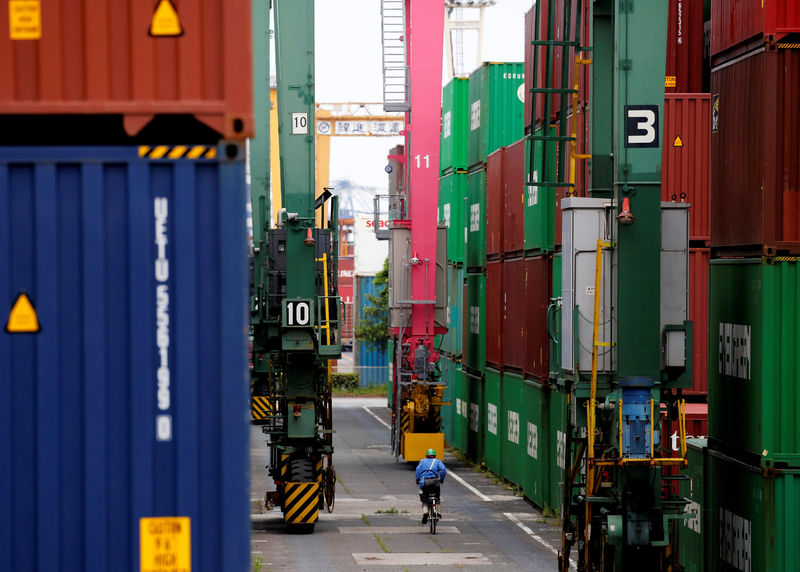By Leika Kihara and Tetsushi Kajimoto
TOKYO (Reuters) - Japanese big manufacturers' business confidence worsened to a six-year low in the July-September quarter, a central bank survey showed, a sign the bitter U.S.-China trade war is taking a heavier toll on the export-reliant economy.
The service-sector mood also deteriorated with some retailers voicing concern over the potential impact of a sales tax hike kicking off on Oct. 1, the Bank of Japan's closely watched "tankan" survey showed on Tuesday.
The weak readings cast doubt on the BOJ's view that robust domestic demand will offset the pain from slowing global growth. This will keep the central bank under pressure to extend more monetary support for a fragile economy.
"Manufacturers from a wide range of sectors said the U.S.-China trade tension and slowing overseas growth were hurting sentiment," a BOJ official told reporters.
The tankan results are among key indicators the BOJ will scrutinize at its next policy review on Oct. 30-31, when it conducts a quarterly review of its price and price forecasts.
The headline index for big manufacturers' sentiment stood at plus 5 in September, versus plus 7 in June and economists' median estimate of plus 2 in a Reuters poll.
It marked the third straight month of decline and the lowest reading since June 2013, when it hit plus 4.
The big non-manufacturers' sentiment index stood at plus 21, compared with plus 23 in June and a median market forecast for plus 20.
Both big manufacturers and non-manufacturers expect sentiment to worsen in the next three months, clouding the outlook for the economy.
The survey also showed big firms plan to raise their capital expenditure by 6.6% in the financial year that ends March 2020, versus economists' median estimate of a 5.5% increase.
Capital expenditure has been among the few bright spots in Japan's economy as non-manufacturers continue to invest heavily on automation to cope with a tight labor market, offsetting the weakness in manufacturers' spending.
While the BOJ kept policy steady in September, it signaled the chance of expanding stimulus as early as this month by issuing a stronger warning against overseas risks.

The tankan's sentiment indexes are derived by subtracting the number of respondents who say conditions are poor from those who say they are good. A positive reading means optimists outnumber pessimists.